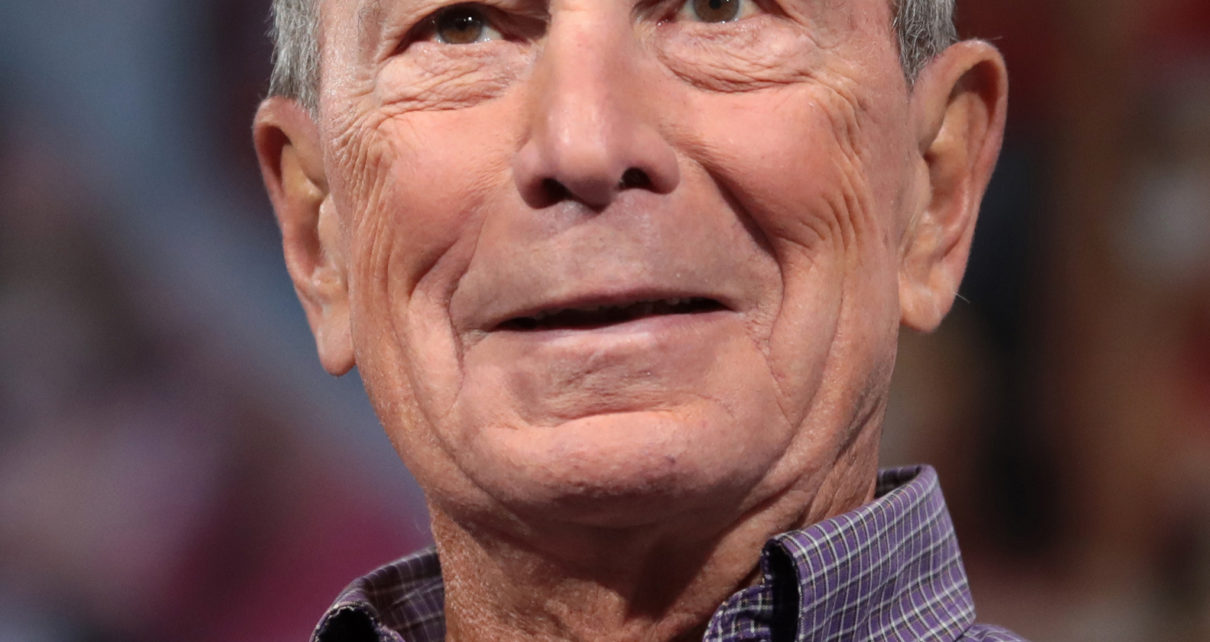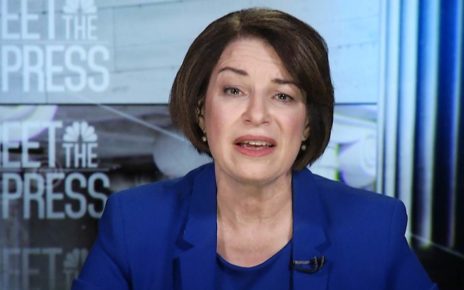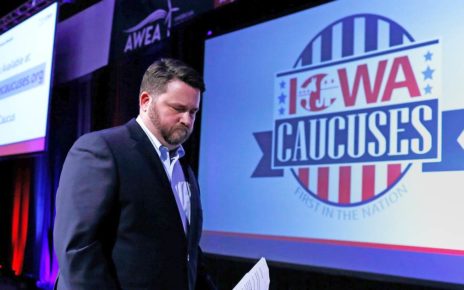
Where things stand in the race
-
With momentum comes resistance: It’s a lesson Michael Bloomberg is learning the hard way as he rises in the polls. His record is a complicated thing, because he not only governed New York City for three terms (first as a Republican, then as an independent) but has also been deeply involved in politics as a philanthropist. As our reporters Alexander Burns and Nicholas Kulish outlined in an investigation into Bloomberg’s “empire of influence” that was published over the weekend, many of the organizations and officials now supporting his presidential run have received funding from his charity in the past.
-
As Bloomberg has risen — hitting 15 percent in a Quinnipiac University national poll last week — he has provided a rare common enemy for his Democratic rivals. Joe Biden criticized Bloomberg on an episode of NBC’s “Meet the Press” that aired Sunday: “Sixty billion dollars can buy you a lot of advertising, but it can’t erase your record,” he said, referring in particular to Bloomberg’s expansion of stop-and-frisk policing tactics during his time as mayor, and his suggestion in 2008 that the end of discriminatory housing practices had helped cause the financial crisis.
-
Elizabeth Warren has repeatedly attacked Bloomberg for his remarks on housing discrimination. At an event in Virginia last week, she said, “That crisis would not have been averted if the banks had been able to be bigger racists, and anyone who thinks that should not be the leader of our party.”
-
Bernie Sanders’s stump speech now includes broadsides against Bloomberg. Sanders has argued that Democrats should not nominate a self-funding billionaire, and at a state Democratic Party dinner on Saturday he took aim at the notion that Bloomberg is more electable than the Vermont senator. “The simple truth is that Mayor Bloomberg, with all his money, will not create the kind of excitement and energy we need to have the voter turnout we must have to defeat Donald Trump,” Sanders said.
-
The latest Nevada poll, conducted for The Las Vegas Review-Journal and AARP Nevada, found Sanders with an outright lead in the state for the first time this cycle. Sanders had 25 percent in the poll, followed by Biden at 18 percent and Warren at 13 percent. It is the first poll to come out of the notoriously hard-to-poll Nevada in over a month; with less than a week to go before the caucuses there, not many more are expected.
-
Biden is also seeking to stanch some of Sanders’s momentum in Nevada, lashing out at him for, as Biden put it, failing to “disown” supporters who had made online attacks against officials with the state’s culinary union. (The union opposes “Medicare for all,” a pillar of Sanders’s platform, but said last week that it wouldn’t endorse a candidate.) Sanders in fact said last week, “Anybody making personal attacks against anybody else in my name is not part of our movement.”
-
Here’s one notable finding from the Nevada poll: By the time caucus day officially rolls around, most ballots may already have been turned in. That’s because roughly three in five likely Nevada caucusgoers said they planned to vote early — that is, at some point between this past Saturday and Tuesday. Theoretically, that could lighten the load on caucus site managers, who will be using a data-entry system that was thrown together at the last minute after the smartphone app that the state’s Democratic Party had planned to use malfunctioned in Iowa.
-
Sanders had more good polling news from another state with a diverse Democratic electorate: A new survey from the University of Texas and The Texas Tribune was released on Friday showing Sanders at the top of the heap there. His 24 percent was within the margin of error of Biden’s 22 percent, leaving them in a statistical tie for first place. Texas is one of the 14 states that will vote in the Super Tuesday contests on March 3.
-
On the other side of the political tracks, President Trump has also seen some good news, according to a report published on Sunday by Politico. The Republican contests in Iowa and New Hampshire drew uncommonly large turnout, despite the fact that Trump’s nomination is all but guaranteed. His vote totals in both states far outpaced George W. Bush’s and Barack Obama’s numbers in those states during their re-election years, 2004 and 2012. (Iowa didn’t hold Republican caucuses at all in 2004.) In New Hampshire, Trump drew more than twice as many voters as either of his predecessors did.
Biden held a rally in Las Vegas on Saturday.
Former Justice Department lawyers call for Barr’s resignation
The backlash is growing against William Barr, the attorney general, for his intervention last week in the Justice Department’s prosecution of Roger Stone, a former Trump ally.
When Barr insisted that prosecutors request a lighter sentence than they originally had, he got a pat on the back from Trump via Twitter.
But all four of the lawyers assigned to the case immediately resigned from it, and on Sunday 1,100 former Justice Department officials published a letter calling for Barr to give up his post.
“Such behavior is a grave threat to the fair administration of justice,” they wrote. “In this nation, we are all equal before the law. A person should not be given special treatment in a criminal prosecution because they are a close political ally of the president.”
On Friday, nine Democratic senators — including Sanders and Warren — sent a letter to Barr, urging him to resign. “You lied to Congress during your confirmation hearing when you stated that you would ‘keep the enforcement process sacrosanct from political influence,’” the senators wrote.
Pelosi tells Democrats to focus on issues, not impeachment
Now that the president has beaten back impeachment, Democrats worry that they may be unable to stop him from interfering in legal matters tied to his own alleged corruption — as in the case against Stone.
But they also worry that focusing on his purported misconduct will not be a winning strategy. Instead, Speaker Nancy Pelosi is telling members of her party that they should focus on kitchen-table issues, like health care and job creation, as well as the broader idea of attacking corruption in Washington.
“Health care, health care, health care,” Pelosi said in a recent closed-door meeting, according to a person who was there and spoke to our reporter Sheryl Gay Stolberg. “When you make a decision to win, then you have to make every decision in favor of winning,” the person recalled Pelosi as saying.
Throughout the impeachment process, national polls reflected a deeply divided electorate, with a wide majority of Democrats favoring impeachment and an equally large share of Republicans opposing it. Independents were generally split. In the wake of the president’s acquittal, Democratic lawmakers are hoping to turn the page — rather than rehashing the trial on the campaign trail.
Their work may be cut out for them: A Monmouth University poll released last week found that Trump is seen favorably by 54 percent of voters in swing counties (those where the presidential vote was decided by 10 points or fewer in 2016), versus 47 percent who see him unfavorably.
“His erratic, corrupt, unconstitutional behavior speaks for itself at this point,” Representative Hakeem Jeffries of New York, the chairman of the House Democratic Caucus, told Sheryl.
On Politics is also available as a newsletter. Sign up here to get it delivered to your inbox.
Is there anything you think we’re missing? Anything you want to see more of? We’d love to hear from you. Email us at onpolitics@nytimes.com.






